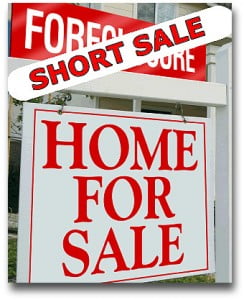As the foreclosure crisis drags on, record numbers of Americans are turning to short sales to save themselves from foreclosure. A short sale is when a homeowner sells their home for less than their mortgage. Usually short sales are done because they homeowner owes significantly more than the value of their home and/or can no longer avoid their mortgage. In the hope of avoiding foreclosure a homeowner might choose a short sale.
But short sales sometimes don’t the magical affect many had hoped, here’s why:
- Avoiding foreclosure through a short sale is often difficult because the short sale process can be complicated. Before a homeowner can sell their home through a short sale they need to get the approval of their lender. Of course many lenders don’t want to see their profits decreased so they resist the idea of a short sale. But even if the lenders says “yes, we will consider a short sale,” the debtor needs to get a good offer from a buyer, who then needs to get financing and even if they get financing the deal still needs to be finalized by the seller’s lender. The deal often falls apart as the seller tries to bring together all of the pieces.
- Because the short sale process is complicated, it can also be a very long process. Many potential buyers become frustrated with the short sale process, and the inevitable delays can cause a buyer to walk away from the deal.
- The failure of a short sale will most likely end a speedy foreclosure process. Homeowners often don’t get a second chance to sell their home via a short sale. Many homeowners facing foreclosure turn to a short sale as a last ditch effort to avoid foreclosure; but when the process fails they can find themselves facing foreclosure eviction fairly quickly. That’s why homeowners who are considering a short sale should also consider their other options such as bankruptcy.
